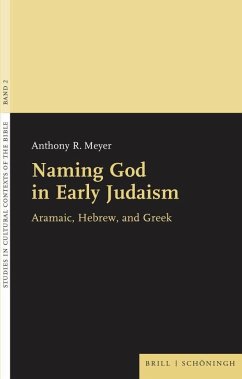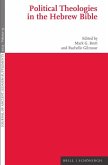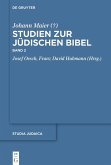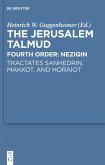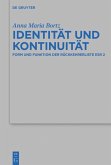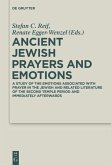During the Second Temple period (516 BCE-70 CE), Jews became reticent to speak and write the divine name, YHWH, also known by its four letters in Greek as the tetragrammaton. Priestly, pious, and scribal circles limitted the use of God's name, and then it disappeared. The variables are poorly understood and the evidence is scattered. This study brings together all ancient Jewish literary and epigraphic evidence in Aramaic, Hebrew, and Greek to describe how, when, and in what sources Jews either used or avoided the divine name. Instead of a diachronic contrast from use to avoidance, as is often the scholarly assumption, the evidence suggests diverse and overlapping naming practices that draw specific meaning from linguistic, geographic, and social contexts.
Bitte wählen Sie Ihr Anliegen aus.
Rechnungen
Retourenschein anfordern
Bestellstatus
Storno

